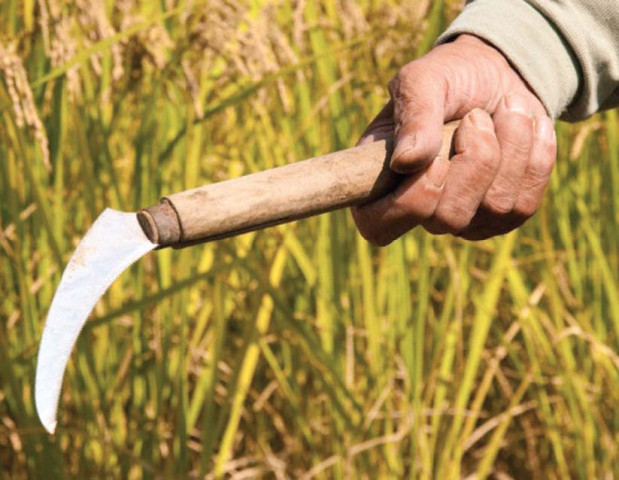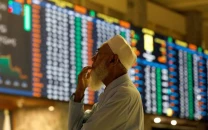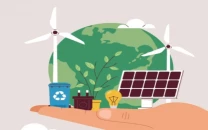Constructive advice: Punjab asks industrialists to become farmers
PBIT vice chairman tells Faisalabad tycoons this is the only way to ride out the energy crisis.

Since the government does not seem to be able to fix the power supply to the industrial sector any time soon, Pakistan’s industrial tycoons might as well quit manufacturing and instead begin investing in livestock and agriculture.
That, at least, was the message to Faisalabad’s captains of industry by Miftah Ismail, the vice chairman of the Punjab Board of Investment and Trade, a government body set up to help facilitate private sector growth in the province.
“You should change your line of business until the energy crisis is resolved,” he said while speaking to a gathering at the Faisalabad Chamber of Commerce and Industry on Wednesday. “This is the only option if you want to avoid the worst impact of the energy shortage in the country.”
If it was meant in jest, the industrialists present at the session, it appears, were not amused at the advice.
“The government should be thinking about how to fast track the procedure to set up alternative energy projects in the country rather than advising us to change our line of business,” said Muzammil Sultan, the president of the Faisalabad chamber. “You should focus on bringing in foreign investment into Pakistan.”
“The government of Punjab trying its best to overcome the energy shortages but it will take some time,” said Ismail, who appeared to have made a rather unfortunate choice of words in trying to encourage Faisalabad’s industrialists to invest in the agriculture sector, which the Punjab government has identified as the province’s core competitive advantage.
Habib Gilani, a director at the PBIT, tried to make the case a little more effectively, pointing out the opportunities that existed in agriculture.
“Punjab’s agricultural land is of a very high quality for farming and gives excellent yield per acre,” said Gilani, implying that Investments in the agriculture and livestock sector are likely to be highly profitable. He also added that if industrialists invested in agribusiness, the improvements in productivity would lower food costs and help address the issue of food insecurity.
About 45% of all Pakistanis are employed in agriculture, including about 17% in livestock. Yet taken as a whole, the sector contributes only 21% of the country’s gross domestic product (or total size of the economy). While Punjab has been rapidly urbanising over the past decade, a large part of its population – including most of the poor – still lives in rural areas.
Improvements in agricultural productivity have long been associated with the advancement of economies. Indeed, the first part of the Chinese economic miracle began with a transformation of Chinese agriculture in 1978, when Deng Xiaopeng allowed farmers in rural China to keep and sell most of their surplus. That decision led to a boom in agricultural productivity that launched the growth trajectory from which China has not looked back.
Many economists believe that Pakistan’s economic progress would rely very heavily on transformative change in the agriculture sector, which in turn cannot come without significant investments. And given the extreme inefficiencies that exist in the sector, the potential for profit is enormous. That is probably the message that Ismail was trying to convey. He just seems to have made an unfortunate choice of phrasing it.
Published in The Express Tribune, March 15th, 2012.



















COMMENTS
Comments are moderated and generally will be posted if they are on-topic and not abusive.
For more information, please see our Comments FAQ